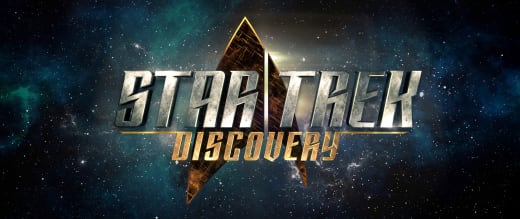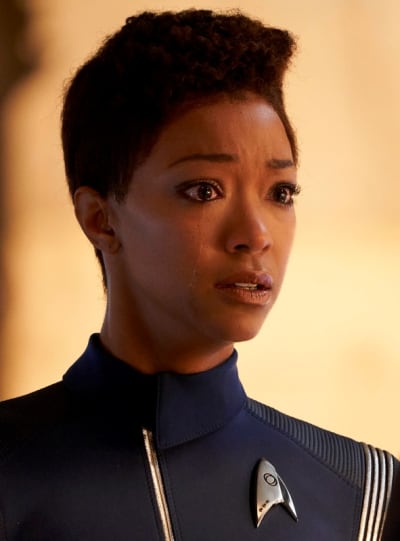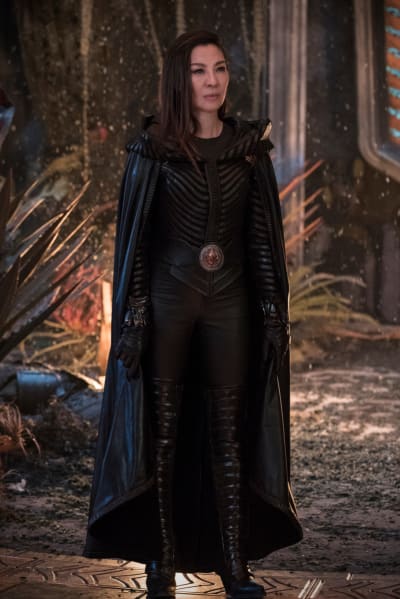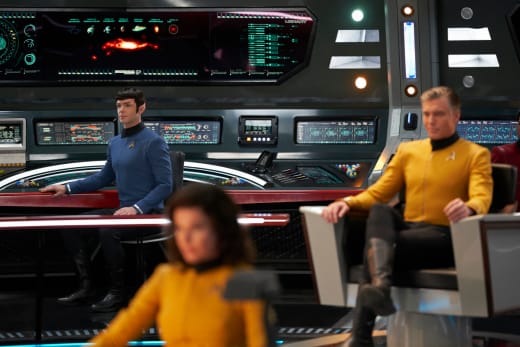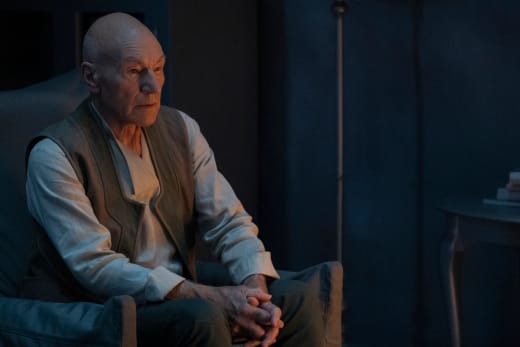Moderated by Dominic Patten of Deadline Hollywood, the Comic-Con@Home virtual panel of all things Star Trek moved swiftly from the welcome by executive producers, Alex Kurtzman and Heather Kadin, through to panels with the casts of Star Trek: Discovery, Star Trek: Lower Decks, and ending with Star Trek: Picard.
Kadin dropped the big reveal at the start of the session, announcing the title of Star Trek’s newest member, a brand-new animated show called Star Trek: Prodigy, created in partnership with Nickelodeon and aimed at a younger audience.
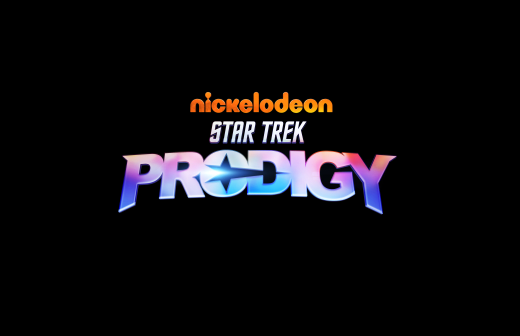
Kurtzman also updated fans on the progress of Star Trek: Strange New Worlds, arguably the most exciting franchise addition for long-time fans.
While the conversations had begun in 2019, he wasn’t able to share that announcement at SDCC last year. This year, he was excited to be able to confirm that they have ten stories fleshed out in preparation for production (whenever that will be #GoAwayCOVID)
The team chose to present a single Star Trek Universe panel this year as a way to promote the #StarTrekUnited mission, an effort by the Star Trek and CBS family to bring awareness to organizations that are critical right now, such as Black Lives Matter and the NAACP.
To make this clear, Sonequa Martin-Green, Michelle Hurd, and Tawny Newsome spoke directly to the cause of the NAACP Defense and Educational Fund, to which CBS All Access has made a donation on behalf of the Star Trek Universe. They encouraged those who could afford it to donate at naacpldf.org/startrekunited.
Ultimately, Kurtzman and Kadin voiced their love for the Star Trek franchise as one that matters in that its message is one of better hope for a world of equality.
The largest portion of the panel was concerned with Star Trek: Discovery which STILL didn’t announce a premiere date for Season 3.
Showrunner Michelle Paradise cheekily dropped the “Will that happen next season? Who knows?” line-with-implied-wink multiple times. Seriously.
As disappointing as it was to not find out when we’ll see Burnham et al back on our screens, it was incredible to see most of the cast reunited for a virtual table read of the first act of Star Trek: Discovery Season 2 Episode 14 facilitated by director Olatunde Osyunsanmi.
Interspersed with sketched storyboard images and rough CGI renderings of the action, with appropriately exciting soundtracking, the table read was surprisingly immersive, building great tension.
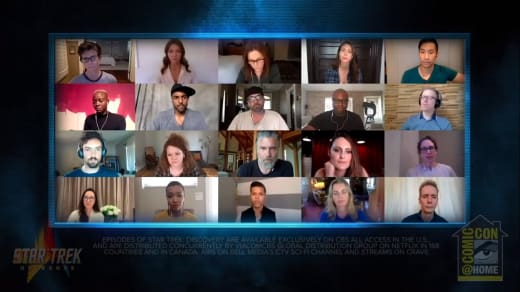
Paradise opened the Q&A with a general question about Star Trek’s tradition of social and political commentary.
Without an exception, the cast chimed in with their thoughts on the aspirational nature of Star Trek, a franchise that envisions a future for humanity free of many of the problems plaguing us today.
“[We get to] imagine,” Anthony Rapp, who plays Lt. Cmdr. Stamets, contributed,”a future and a world where people are valued for who and what they are.”
Furthermore, other cast members pointed out, it’s a message that the work is never done, the mission never completed because, in Mary Chieffo’s words,”[There are] infinite combinations of diversity.”
Sonequa Martin-Green, who portrays central character Michael Burnham, summed up their discussion. “This vision of the future holds us accountable as the work is not done. I hope that we contribute moments to the movement.”
The cast fielded a few character-specific questions, submitted to Paradise online.
The most amusing was probably to Michelle Yeoh, the embodiment of the intimidating but always entertaining Philippa Georgiou, who was asked how Georgiou was going to feel in Season 3 after being ripped out of the world she knows YET AGAIN.
“Really PISSED off,” Yeoh states unequivocally. “Michael Burnham, don’t get in my way.” But, with some introspection, Yeah also admits that Georgiou always adapts. She’s a survivor with many skills who can be a formidable ally… or enemy. She never needs to fight for power, it is just inherently hers.
(Can you tell how much I’m looking forward to Yeoh’s Section 31-based series?!?)
Turning to the crew of the U.S.S. Enterprise (pre-TOS), Paradise asks them how they feel their Season 2 adventure with Discovery will affect them, moving forward into “strange, new worlds” [pause for the oohs and aahs at slipping that reference in like a pro]
Ethan Peck, the most recent actor to take on the role of Spock, felt that Spock’s interaction with his adopted sister, Burnham, gave him the permission he needed to be human, something a half-human, half-Vulcan, raised as a Vulcan, never really understand or accepted growing up.
In acquiring the time crystal last season, Anson Mount’s Captain Pike saw his end days as a bitter and crippled man. Knowing that, Mount questioned why anyone would want to see their future. “There’s a reason we can only see our past. We’re a very neurotic species.”
Pike’s Number One, played by Rebecca Romijn, had the most zen approach to the next chapter in the Enterprise’s adventure. Her hopes for Pike, Spock, and Number One? “Surrender to the unknown.”
Turning the reins over to Mike McMahan, the creator and showrunner of the next arrival in the Star Trek Universe, the animated comedy Star Trek: Lower Decks, the panel took on a lighter tone as the voice talent behind the crew of the U.S.S. Cerritos.
McMahan, with impressive writing credentials like Rick and Morty and South Park backing him, began by explaining their approach to this series, set in the Star Trek timeline just after the film Nemesis and long before the happenings in Star Trek: Picard.
“[We] tried to fit it into canon, so it doesn’t break anything, but we tried to do something new with it at the same time.”
The pilot episode takes place Stardate 57436.2 (or the year 2380), and the clip he showed featured Ensigns Boimler (voiced by Jack Quaid) and Mariner (voiced by Tawny Newsome).
The humor felt like a more family-friendly Rick and Morty but played it more fast and loose than we’ve ever seen Starfleet officers behave.
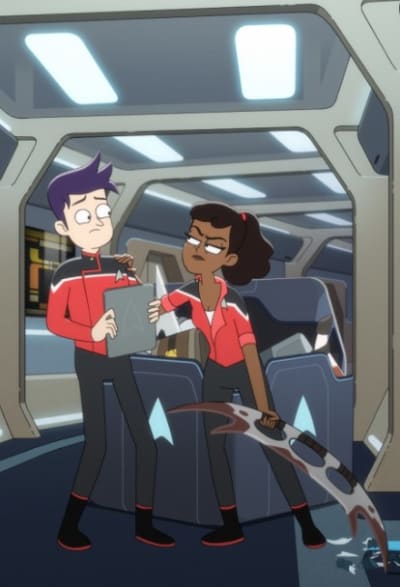
For one thing, Ensign Mariner is actually and admits to being drunk on Romulan Whisky. For another, she drunkenly spars with a totally unarmed Boimler, using a Klingon Bat’leth she finds. Injuries ensue.
McMahan then introduced the cast and had them briefly describe their characters.
Newsome thought that Mariner was very much like herself, not always playing by the rules but an extremely capable crew member.
Quaid admits that Boimler is a total Starfleet nerd whose dream of achieving a bridge rank means he tries to be as by-the-book as possible.
Eugene Cardero’s Ensign Rutherford is a cyborg and a tech-head so he loves that he’s half-composed of mechanics.
Ensign Tendi is excited about everything, states Noël Wells. The green-skinned medical bay ensign is unflappable and incredibly optimistic.
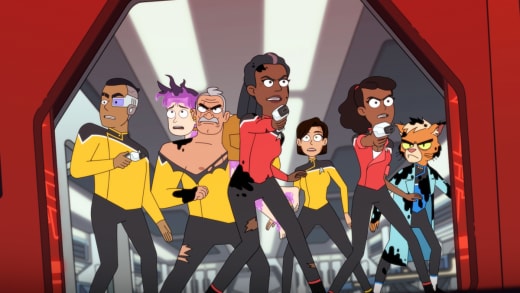
While the show is expected to focus on the four ensigns, there’s obviously a bridge crew of higher-ranking officers to actually run the ship.
Dawnn Lewis voices Captain Carol Freeman, who takes herself “very, very seriously,” although Lewis often feels she’s not actually in control.
Commander Jack Ransom is a First Officer with a short fuse, says voice Jerry O’Connell. He describes him as not easy to work for and yet still caring deeply for Starfleet. Also, O’Connell is pretty sure some things Ransom says and does would never make it to air on any other Star Trek show.
(McMahan added here that, given that Lower Decks would be the first comedic Star Trek show, the decision was made to let the crew just be people. He also pointed out that O’Connell not only plays a Number One, but he’s also married to a Number One, Rebecca Romijn.)
Rounding out the bridge are Lt. Shaxs (Fred Tatasciore), a security officer who’s instinct is always to shoot first, and Dr. T’Ana (Gillian Vigman), an excellent physician despite having a terrible alley-cat-esque bedside manner.
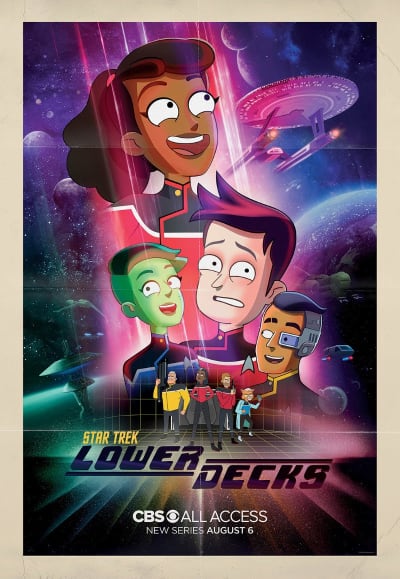
Asked what they liked best about being Starfleet and what their favorite part of Season 1 was, the cast was so forthcoming that they are repeatedly bleeped for spoilers.
(This would be the biggest drawback about virtual panels in my opinion. The juicy things live panels drop are one of the greatest joys of attending conventions.)
McMahan and the cast expressed confidence in Star Trek: Lower Decks appealing to an audience that has yet to connect with the Star Trek Universe.
Wells added that there’s a lot to enjoy for people who love animation and darkly comedic narratives.
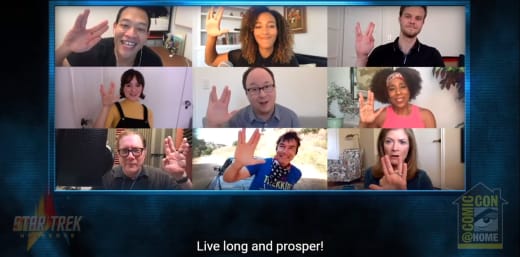
By the way, TV Fanatic will be recapping and reviewing every episode of Star Trek: Lower Decks! Be sure to let us know your thoughts on this new foray into the Trek-verse!
The final act in the Star Trek Universe panel fell to the cast of Star Trek: Picard and included the entire core cast.
Coming off a triumphant first season, the cast — many who were reprising roles from Star Trek: The Next Generation — shared thoughts and feelings about the reception this series garnered.
Of all the groups involved in this panel, the Picard cast really seemed to capture the gentle ribbing and running jokes that live panels usually involve.
Marina Sirtis gets the credit for kicking that off as she reminded Sir Patrick Stewart that he spent the first half of their production just learning everyone’s names. He never did get around to surnames, he admits. “We allow for that,” Sirtis claims, “because you’re very old.”
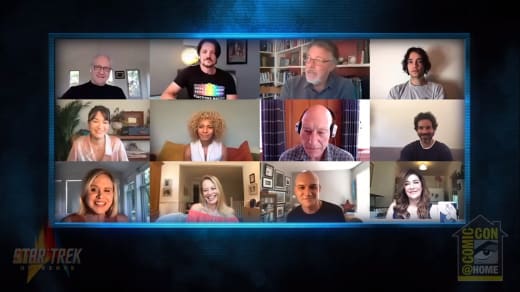
Between the debate on what Patrick Stewart’s preferred nickname is (ICYMI, it’s “P-Stew”) and the many claimants to the title of “Space Cowboy,” the overwhelming sense from the panel was that they were grateful to be a part of this new chapter.
P-Stew was obviously the most pertinent voice on that. “Coming back to the character was the right decision,” he said.
He explained that the two-hour pitch for the show attracted him with its plan to not just revive the world of Star Trek: The Next Generation but to illustrate the years that have passed and how the world has changed.
Furthermore, Picard himself was not the same man. This Picard is disappointed, sad, guilty, angry, and potentially dangerous.
Of the few questions moderator Patten was able to broach, the one that addressed the closure found for Data and Picard at the end of Season 1 was a thoughtful one.
Spiner commented that although he’d “put Data to sleep, or blew him up” many years ago, he felt that there was a sort of closure in Nemesis but that Star Trek: Picard allowed for a different type and credits the writing teams of both productions for creating amazing scenes.
Stewart’s analysis of Data’s final wish is one that speaks to the value of life itself. In order to fulfill Data’s wish to be truly human, his life needed to end because that’s what gives value to the time you spend living. Knowing that life is terminal is what makes living important.
What do you think? What questions would you have asked any of these casts given the chance?
Diana Keng is a staff writer for TV Fanatic. Follow her on Twitter.

